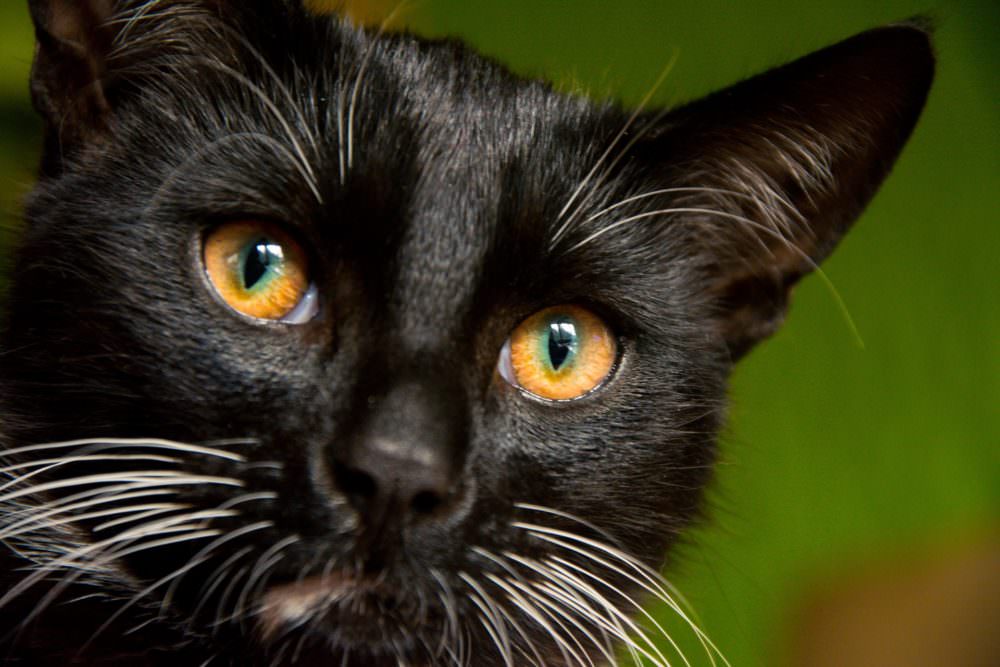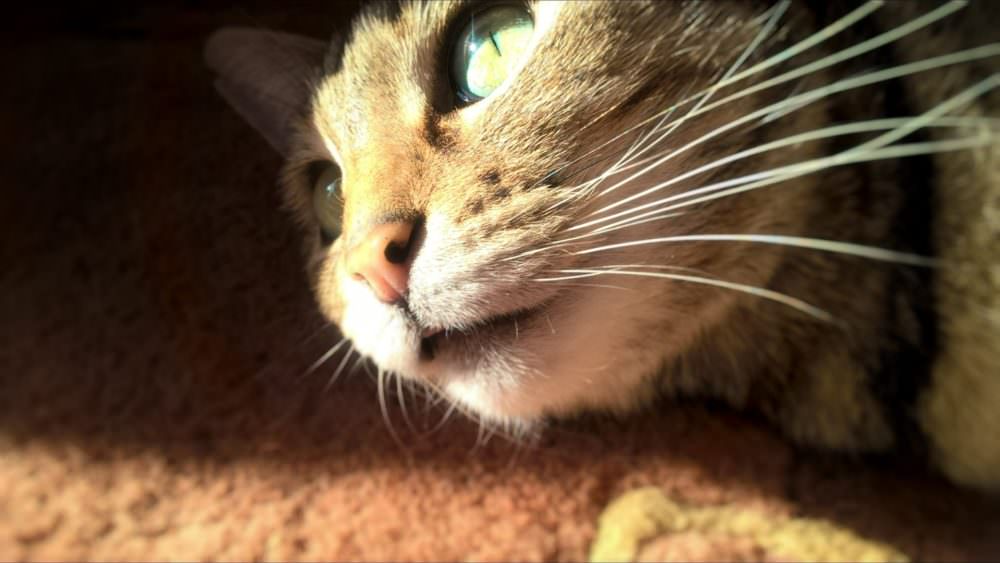Whisker fatigue can be difficult to understand for someone without whiskers. Imagine having a bright light shining in your eyes every time you lifted a fork to your mouth – it’s somewhat similar. Not outright painful, but it can get really irritating really fast.
Your cat’s whiskers aren’t just there to look pretty, they help your cat with their ability to get around in the dark. It has only recently been discovered that their food dish may be setting off the “sensors” in their whiskers and causing them some distress or irritation.

If your cat’s mealtimes have become a pain, whisker fatigue may be the reason. If you notice that your cat is knocking their food out of their dish and eating from the floor, is avoiding eating or drinking, or seems upset but still hungry, you may want to change the dishes they use. However, the same behavior may be due to other things, like digestive issues, so check with your vet to make sure that your cat’s irritation isn’t caused by something different.
Don’t feel obligated to buy your cat a forty-dollar whisker-fatigue-fighting food dish – shopping for your kitty is always fun, but you can achieve the same results with any flat surface with little-to-no rim. A regular plate ought to do fine – and you can always tell your cat that it cost a fortune and he won’t know the difference! As for water, many cats prefer to drink fresh, flowing water, but if you prefer a bowl, try to find a dish wide enough that their whiskers don’t touch the sides. (Check out 10 Reasons Cats Don’t Like Drinking Out Of Water Bowls for more info.)

Whatever you do, DO NOT try to trim your cat’s whiskers! This won’t help at all and will just dampen their ability to use them. If you switch your cat’s bowls and find that it doesn’t change your cat’s attitude about eating, you should call your vet to make sure the issue isn’t something that needs medical attention. As always, any changes in behavior should be run by a medical professional.
